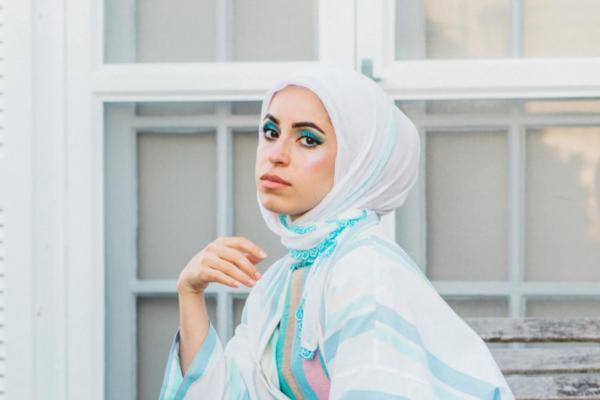SYRIAN. AMERICAN. Muslim. Woman. These distinctions of religion, geography, and gender are sometimes considered worlds of their own, but rapper Mona Haydar is used to navigating between them as a daughter of Syrian immigrants to the U.S. who grew up in Flint, Mich. Her experiences of embodying a multicultural identity in a country teeming with bigotry are the basis of her new EP, Barbarican, a collection of powerful songs that challenge rigid notions about who gets to consider themselves American and who gets left out and called a barbarian.
Haydar emerged onto the music scene in March 2017 when she released a colorful music video for her song “Hijabi (Wrap My Hijab).” The video featured her, eight months pregnant, surrounded by hijab-clad women as she rapped about diversity and the freedom to practice hijab, an often-criticized tradition in the West. Billboard named “Hijabi (Wrap My Hijab)” one of the best protest songs of 2017, creating anticipation for more music from Haydar. With Barbarican, Haydar has delivered a searing follow-up.
Opening with the line, “If they’re civilized, I’d rather stay savage,” Barbarican celebrates the colonized, specifically those who have suffered from the racist equating of “brown” and “black” to “backward” and “barbarian,” and “modern” to “white.”
In the song “Barbarian,” Haydar examines the ways in which colonialism seeps into the minds of people of color, teaching them to hate aspects of themselves. With dynamic beats and catchy refrains, she creatively subverts colonialism by using its own words against it. Haydar even fights stigma surrounding mental health, by wrestling with both her experience of postpartum depression in her song “Lifted” and her reaction to the suicide of a friend in “Suicide Doors,” which features singer-songwriter Drea d’Nur.
Read the Full Article

